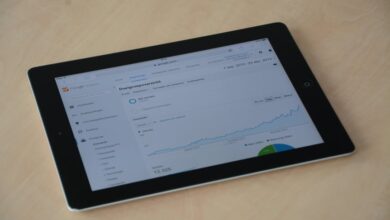Building a Financial Framework With Bookkeeping 2245096119

Building a financial framework through bookkeeping is a critical endeavor for any business. It involves systematic categorization of financial transactions, which enhances accuracy in reporting. This structured approach not only provides clarity but also aids in informed decision-making. As businesses navigate economic uncertainties, understanding the nuances of bookkeeping becomes increasingly vital. The implications of this framework extend beyond mere compliance, prompting questions about resource allocation and future growth potential. What strategies will emerge from a robust financial structure?
Understanding the Basics of Bookkeeping
Bookkeeping serves as the foundational framework for effective financial management within a business.
Through meticulous transaction categorization, businesses can ensure accurate financial reporting, which provides insights into performance and facilitates informed decision-making.
This structural clarity not only enhances transparency but also empowers entrepreneurs to navigate their financial landscape with confidence, ultimately supporting their pursuit of autonomy and growth in a competitive environment.
Key Principles of Financial Management
Effective financial management relies on a set of key principles that guide businesses in their quest for sustainability and growth.
Central to this framework are budgeting strategies that allocate resources efficiently and enhance decision-making.
Additionally, maintaining optimal cash flow ensures that a business can meet its obligations while investing in opportunities, thereby fostering long-term viability and operational freedom.
Tools and Techniques for Effective Bookkeeping
Accurate financial records are essential for businesses aiming to maintain clarity and control over their financial health.
Effective bookkeeping can be achieved through a combination of digital tools, such as accounting software and cloud storage, alongside traditional methods like ledger books and manual entries.
This balanced approach ensures comprehensive tracking, minimizes errors, and empowers businesses to make informed financial decisions, enhancing overall operational freedom.
The Long-Term Benefits of a Strong Financial Framework
A robust financial framework provides numerous long-term advantages for businesses, extending beyond mere compliance and record-keeping.
It fosters financial stability, enabling organizations to navigate economic fluctuations effectively.
Moreover, such frameworks support wealth accumulation by facilitating strategic investments and informed decision-making.
Ultimately, businesses equipped with a strong financial foundation are better positioned to achieve sustainable growth and enhance their operational freedom.
Conclusion
In summary, establishing a solid financial framework through effective bookkeeping is akin to laying a strong foundation for a skyscraper. Just as a building’s stability relies on its underlying structure, a business’s resilience is rooted in precise financial management. According to a study by the Small Business Administration, 30% of small businesses fail within the first two years, often due to poor financial practices. Thus, investing in a robust bookkeeping system is crucial for sustainable growth and navigating economic uncertainties.



